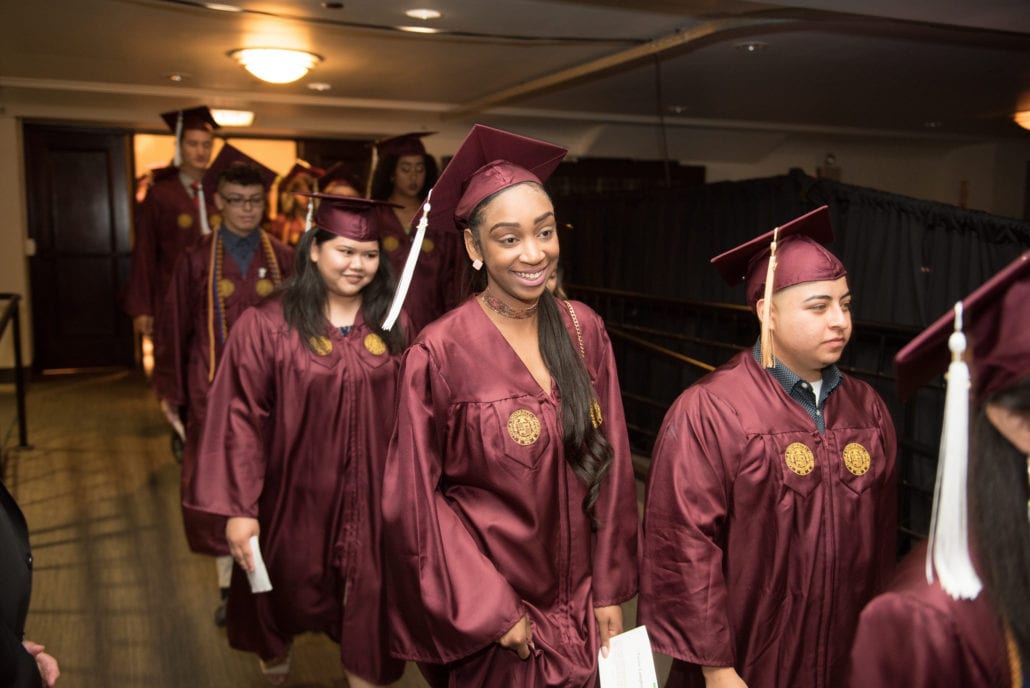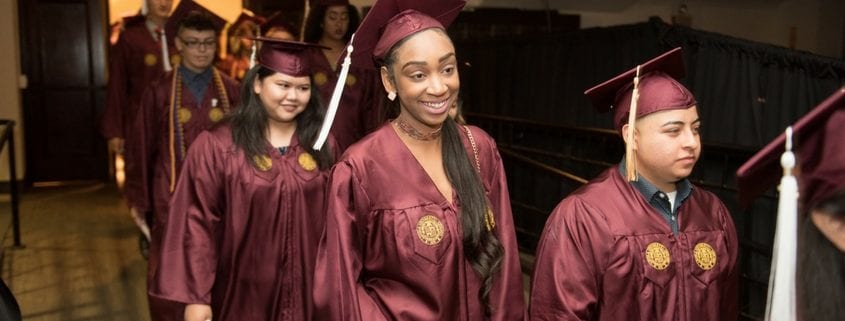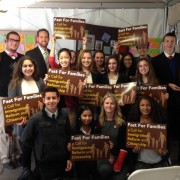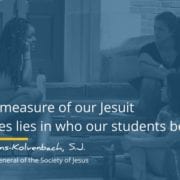Loyola University Chicago Celebrates Inaugural Commencement for Arrupe College
BY ISN STAFF | August 23, 2017
Eighty-Two Students Graduate from Innovative Higher Education Model
Loyola University Chicago’s Arrupe College celebrated its first graduating class at its inaugural Commencement ceremony on Saturday, August 12, at the University’s Lake Shore Campus. The event marked a milestone for the college and its 82 graduates. Launched in 2015, Arrupe College is a two-year associate’s degree program that provides a rigorous liberal arts education to motivated students with limited financial resources and an interest in attending a four-year institution. The program addresses the need in higher education to increase completion rates of post-secondary education degrees for students from low-income families.
Fifty-two percent of the inaugural class graduated at the ceremony and an additional 16 percent are on track to graduate in December 2017. These rates far exceed the national average reported by Complete College America—only five percent of full-time community college students earn an associate’s degree within two years.

Students process at Arrupe College of Loyola University Chicago’s inaugural Commencement ceremony on August 12, 2017.
“The key feature of our success in terms of retention and graduation rates has to do with my colleagues, and particularly how our faculty members serve as advisors,” said Stephen Katsouros, S.J., dean and executive director of Arrupe College. “Our style of advising is cura personalis—‘care for the whole person’—oriented. Students meet with advisors several times during the course of the semester, and faculty meet once a week to discuss students.”
The school’s diverse population includes many students who are the first in their family to pursue higher education, and each student receives an institutionally funded scholarship. Many also receive additional donor-funded scholarships. Earlier this month, the University announced it had received a $6 million gift to assist Arrupe students and graduates in their individual pursuits of higher education, specifically students who do not qualify for state or federal aid because of their immigration status.
“I feel like Arrupe has given us that chance,” said Arrupe graduate Blanca Rodriguez. “You can do it—it doesn’t matter where you come from, what culture you are from, or what your background is. You can go to whatever school you want to and succeed wherever you want to go.”

Arrupe College commencement
Seventy-three graduates of the Class of 2017 are pursuing further education to earn bachelor’s degrees at colleges and universities around the country this fall, including Loyola University Chicago, Regis University, Loyola University New Orleans, University of Illinois at Chicago, Dominican University, University of Wisconsin-Madison, Georgetown University, and more.
“I’m grateful particularly to this group of graduates because they took a risk to pioneer this with us,” said Father Katsouros. “We are very invested in these students, in who they are, in their successes, and also with what they have brought to us. I think that they are really impacting Jesuit higher education—they are teaching us how to deliver this curriculum to a new and very important demographic, one that’s going to have a huge impact on cities like Chicago and the communities our students come from.”
Named after Pedro Arrupe, S.J., former superior general of the Society of Jesus, Arrupe College of Loyola University Chicago is a two-year associate’s degree program for motivated students with limited financial resources and an interest in attending a four-year institution after graduation. The program offers associate’s degrees in Arts and Humanities, Business, and Social and Behavioral Sciences. The college’s unique education model features enhanced pre-enrollment orientation; a strong cohort and holistic, integrated series of supports for students to optimize their chances for academic and social success; intensive one-on-one contact with specialized faculty and staff; a degree that is fully transferable to state and private options throughout the state; and a financial strategy that permits low-income students to fully finance the cost of instruction with aid that does not include, or minimizes, assuming debt.










Students – they are the future leaders of our Planet.